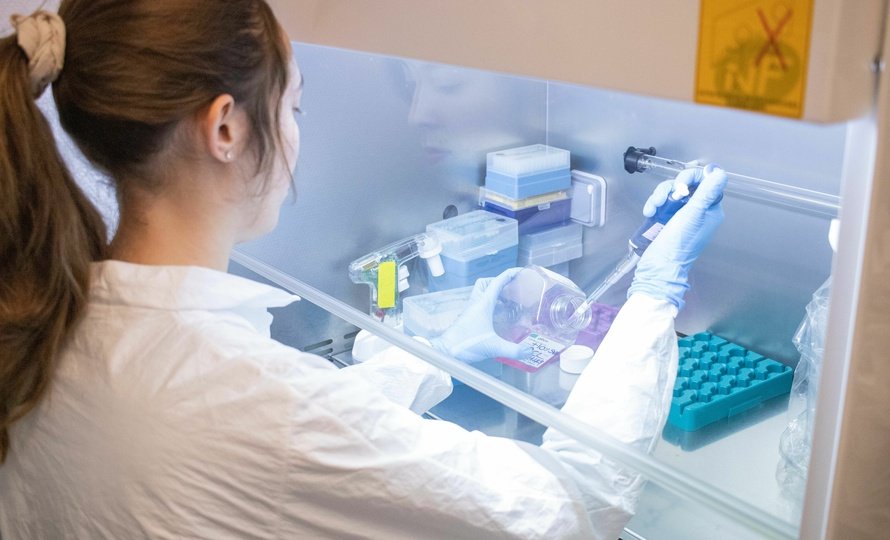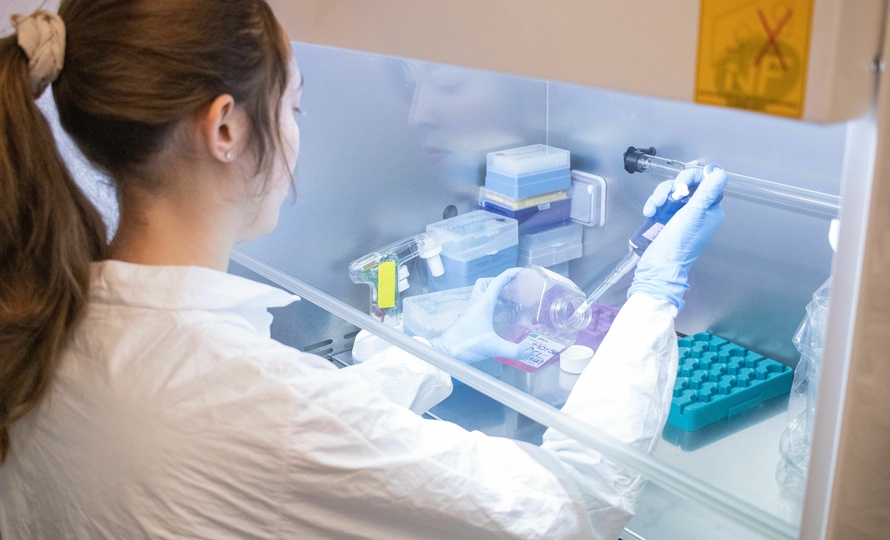Immunotherapy : Biomunex to develop promising approach based on Institut Curie discovery


Partners since 2019, Institut Curie and Biomunex announce a new stage in their strategic research collaboration. Already co-inventor and 50% co-owner of this approach, Biomunex has signed an exclusive licensing agreement with Institut Curie for the clinical development of a new class of antibodies, capable of specifically targeting, engaging and redirecting MAIT cells to destroy cancer cells. A further step towards new, safer and more effective cutting-edge immunotherapies for the benefit of patients.
MAIT cells: a new way to boost immunotherapy
The immune cell redirection approach has led to significant advances in immunotherapy. Over 80 bispecific antibodies based on this approach are currently in development, most of them using T-cell redirection specifically targeting the CD3 receptor. This technique is applicable to a wide variety of cancers, but has many limitations. These include cytokine release syndrome[1], dose-limiting toxicity[2] and minimal clinical activity against solid tumors.
In recent years, French biopharma Biomunex[3] and Institut Curie - via its Cancer Immunotherapy Center headed by Dr Sebastian Amigorena, and its Clinical Immunology Laboratory headed by Dr Olivier Lantz - have signed several partnerships to overcome these limitations, using the unique properties of MAIT cells. First identified and described in 1999 by Dr. Lantz, MAIT cells are a subpopulation of unconventional T lymphocytes found throughout the body, particularly in barrier tissues and mucous membranes, capable of proliferating, migrating and infiltrating solid tumors.
The collaboration between Institut Curie and Biomunex has led to the identification of a novel therapeutic approach based on these unique properties: the redirection of MAIT cells to eliminate cancer cells, thanks to a new class of antibodies known as "MAIT engagers".
Breakthrough innovations for the benefit of patients
Building on the signature of this exclusive licensing and exploitation agreement, Biomunex will shortly initiate a Phase 1 clinical trial to evaluate its first MAIT engager in the treatment of solid tumors with a high medical need, and for which MAIT cells are particularly well represented (colorectal, liver, gastric, lung, esophageal cancers, etc.). Biomunex currently has two MAIT engagers in preclinical development, and has begun to expand this approach in several areas.
We are delighted to announce the signature of this major agreement with Institut Curie, a benchmark institute in global oncology research and a major historical partner of Biomunex", comments Dr Pierre-Emmanuel Gerard, founder and Chairman of Biomunex. Dr Simon Plyte, Chief Scientific Officer of Biomunex, adds: This agreement positions Biomunex as the world's leading player in the disruptive field of MAIT engagers, based on the unique BiXAb bi- and multi-specific antibody platform.
"The development of new immunotherapy approaches in oncology has become a key challenge in providing an answer to the millions of cancer patients for whom traditional treatments can no longer do anything," continues Dr Sebastian Amigorena. "Research carried out at Institut Curie has led to a major discovery that now opens up new therapeutic options. This agreement will enable Biomunex to start clinical developments to exploit the unique properties of MAIT cells, and thus bring to life breakthrough therapies for the benefit of patients," concludes Dr Olivier Lantz.
[1] Cytokine release syndrome can cause a variety of symptoms ranging from fever to flu-like symptoms or severe, life-threatening manifestations.
[2] The dose of a drug induces significant toxicities that limit the increase in a patient's dose.
[3] Biomunex specializes in the development of innovative therapies through the discovery and development of bi- and multi-specific antibodies for the treatment of cancer.

